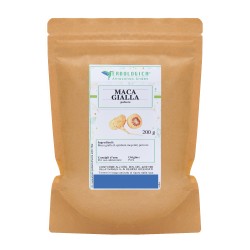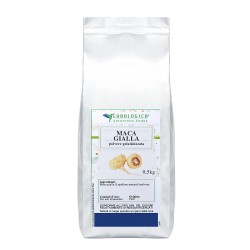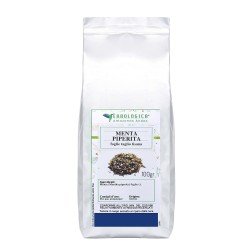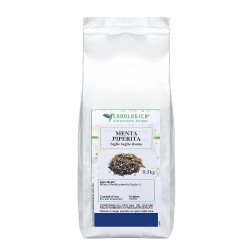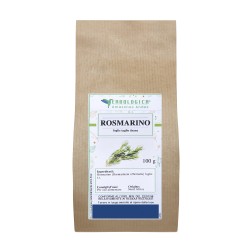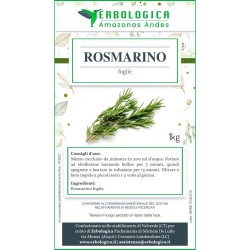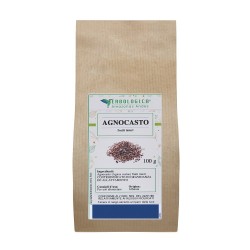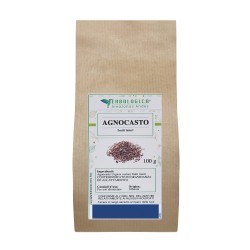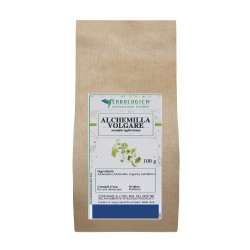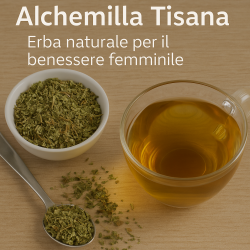
Erbe medicinali per il benessere femminile e l’equilibrio naturale
Un percorso armonioso sostenuto dalla qualità Erbologica
Il benessere femminile richiede cura, ascolto e delicatezza.
Le erbe medicinali possono offrire un sostegno naturale prezioso nei diversi momenti della vita, accompagnando l’organismo con semplicità e equilibrio quotidiano.
Che cosa significa utilizzare erbe medicinali per il benessere femminile?
Le erbe medicinali sono alleate tradizionali dei ritmi naturali della donna.
Attraverso tisane, polveri o preparazioni leggere, permettono di integrare piccoli gesti quotidiani capaci di offrire comfort nei momenti più intensi, sostenendo equilibrio e sensazioni di armonia.
Quali benefici tradizionali sono associati alle erbe per le donne?
Molte piante sono apprezzate da generazioni per il loro contributo naturale al benessere femminile.
L’agnocasto è associato alla regolarità dei ritmi mensili, il trifoglio rosso è conosciuto nella tradizione popolare per accompagnare i cambiamenti tipici della maturità, mentre l’alchemilla è apprezzata per la sua delicatezza nei momenti in cui serve maggiore equilibrio.
La maca, nelle sue varianti gialla e tricolore, viene utilizzata nelle culture andine come sostegno naturale in periodi di particolare intensità.
Rosmarino e menta piperita completano questo ventaglio aromatico con una sensazione fresca e rivitalizzante.
Come integrare le erbe medicinali nella routine femminile?
Integrare queste piante è semplice e naturale.
Da noi puoi trovare la maca gialla peruviana in polvere e la maca tricolore, ideali da aggiungere a frullati o yogurt.
L’agnocasto frutti tisana offre un modo tradizionale per accompagnare i ritmi mensili.
Il trifoglio rosso fiori tisana può essere gustato caldo in momenti di tranquillità, mentre l’alchemilla tisana è spesso scelta per gesti quotidiani di equilibrio personale.
Per chi ama aromi più vivaci, il rosmarino in polvere o la menta piperita foglie tisana possono essere aggiunti a bevande o preparazioni semplici.
Quali combinazioni naturali possono essere utili ogni giorno?
Una tisana serale di alchemilla può accompagnare momenti di quiete.
La maca può essere alternata al trifoglio rosso nel corso della settimana per una routine variata.
Una tazza di menta piperita dona freschezza nelle giornate più impegnative, mentre un pizzico di rosmarino può arricchire bevande calde, offrendo una sensazione aromatica più tonica.
Alternare più erbe durante il mese permette di costruire una routine naturale personalizzata e armoniosa.
Scopri anche il nostro contenuto correlato: Piante medicinali per il benessere della donna
Domande frequenti
Quali erbe sono più utilizzate per il benessere femminile?
Maca, agnocasto, trifoglio rosso e alchemilla sono tra le più apprezzate secondo la tradizione erboristica.
Si possono combinare più erbe nella stessa giornata?
Sì, variarle con equilibrio permette di creare una routine naturale personalizzata.
Come assumere la maca ogni giorno?
In polvere o capsule, aggiunta a colazioni o bevande leggere.
Le tisane sono un buon modo per integrare le erbe?
Sì, sono semplici da preparare e piacevoli in diversi momenti della giornata.
Rosmarino e menta piperita possono essere usati anche da chi vuole benessere generale?
Sì, sono aromi versatili e naturali che completano la routine quotidiana.
Contenuto esclusivo per erbologica.it – aggiornato a dicembre 2025


